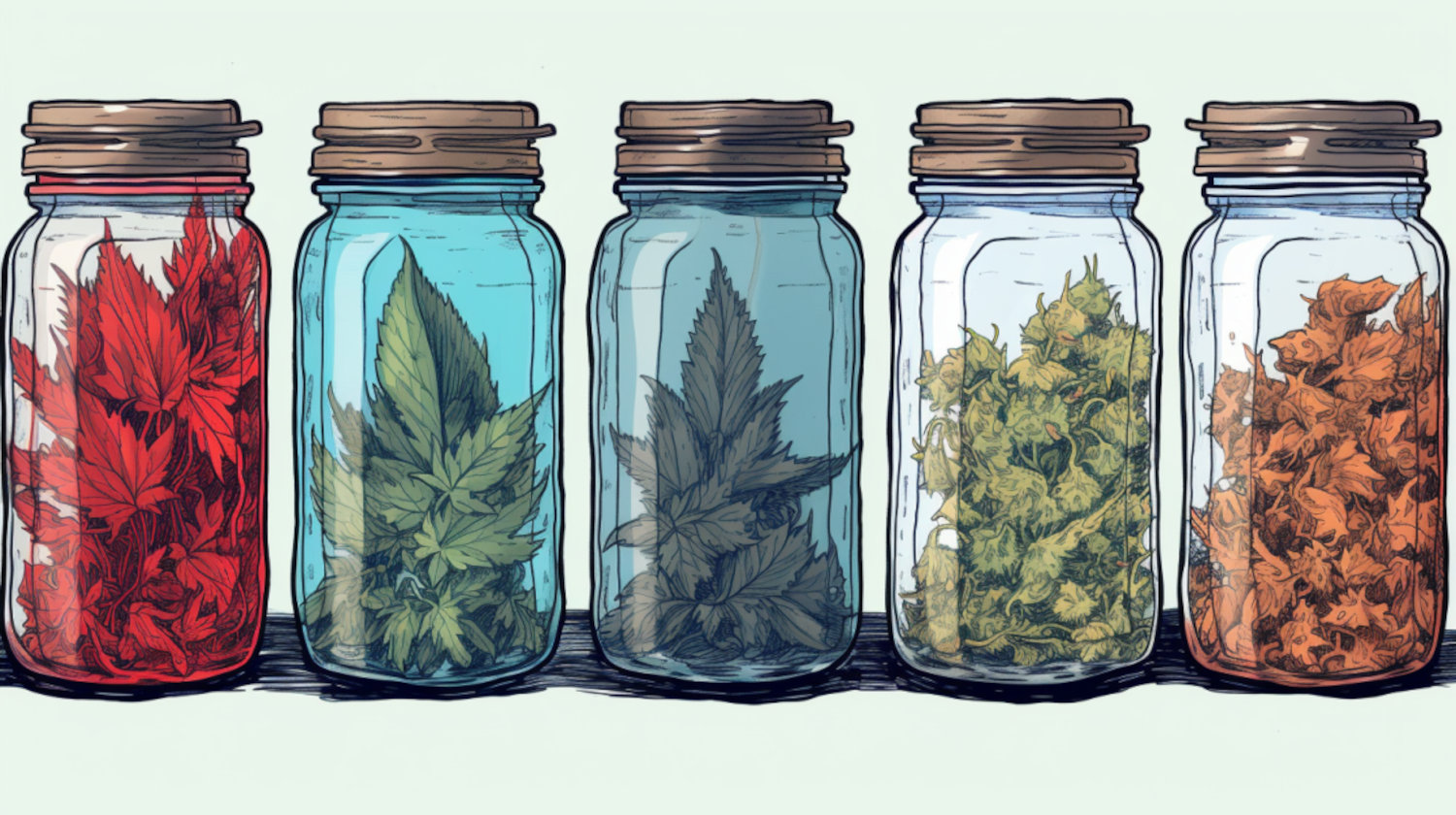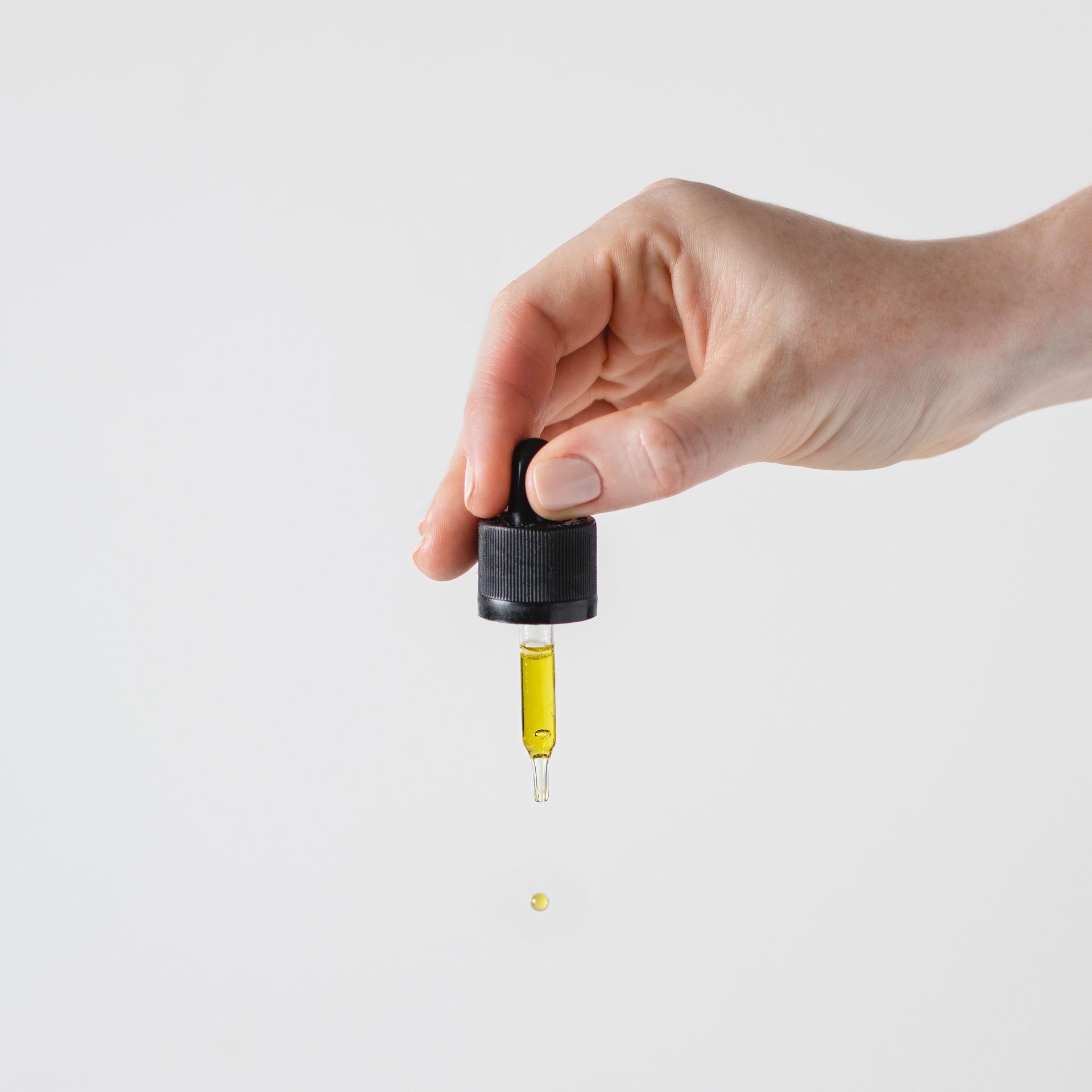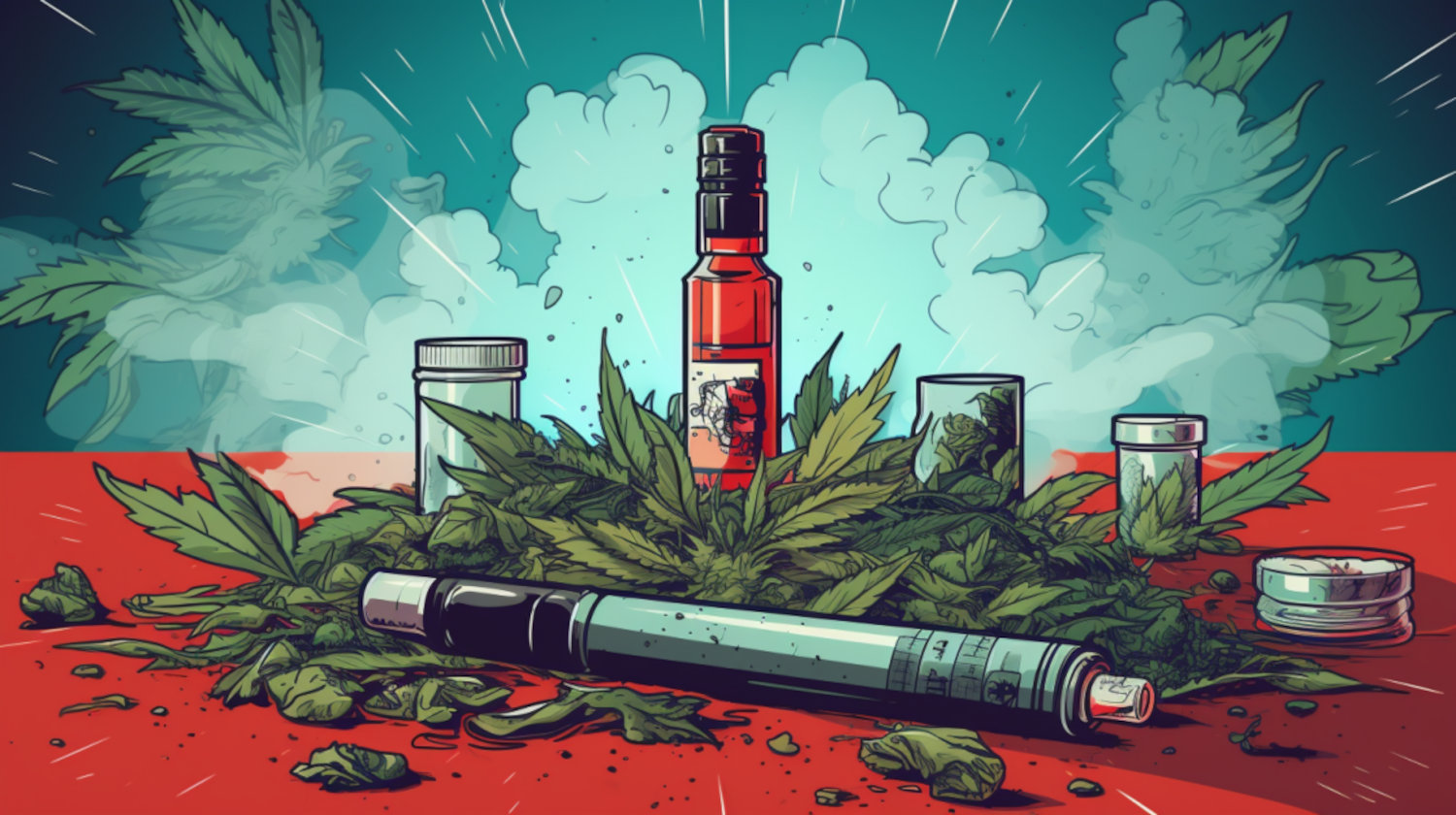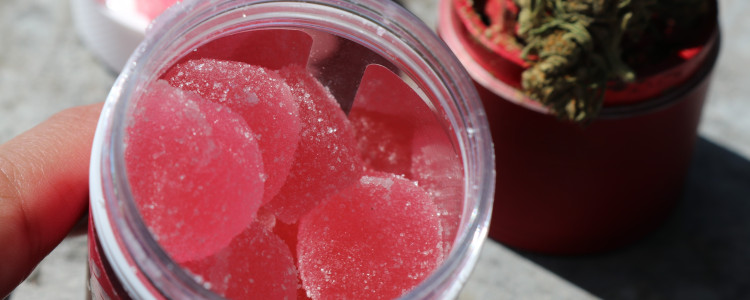In This Article
- What is the Strongest Form of THC?
- Why Are There So Many Delta Forms of THC?
- What is Delta-3 THC?
- What is Delta-6 THC?
- What is Delta-8 THC?
- What is Delta-9 THC?
- What is Delta-10 THC?
- What is Delta-11 THC?
- The Showdown: Which Delta is Strongest?
- Balancing Potency and Safety
- Which Delta is Right for You?
- References
Key Takeaways
- Delta-9 is the strongest and most psychoactive of the THC variants.
- Delta-8 is less potent, offering a calmer, more relaxing high.
- Delta-10 is the mildest and tends to feel more energizing or uplifting.
Over the last few years, a variety of delta cannabinoids have gained traction, each promising unique effects and potencies. As swiftly as this trend took root, so did the confusion surrounding the multiple delta variations.
For many, distinguishing between them is like navigating a maze, driven by the ultimate question: "Which delta is strongest?"
To find an answer, it's key to unpack this developing topic, examine the differences between these cannabinoids, and attempt to shed light on the reigning champion in the potency faceoff.
What is the Strongest Form of THC?
Among the known delta THC compounds, delta-9 is the strongest. It produces the most intense high and is the main psychoactive compound in cannabis. Delta-8 is weaker and typically creates a calmer, more clear-headed effect. Delta-10 is even milder, often described as energizing or cerebral.
Other forms of THC, like delta-3 and delta-6, aren’t as well studied or widely available. For most consumers comparing options, delta-9 delivers the strongest and most consistent effects.
Why Are There So Many Delta Forms of THC?
The 2018 Farm Bill, which legalized the cultivation of hemp, played a crucial role in the rise of the delta forms of tetrahydrocannabinol (THC). But to understand this ripple effect, it's important first to distinguish between hemp and marijuana. While both plants hail from the Cannabaceae family and are both considered cannabis, 'hemp' is legally characterized by having 0.3% or less THC by dry weight,1 whereas 'marijuana' contains much higher levels of the intoxicating compound. While marijuana is considered a Schedule I substance due to its high delta-9 THC content, the Farm Bill essentially gave the green light to CBD and other hemp-derived cannabinoids, catapulting them into the limelight.
However, the legality of these cannabinoids remains somewhat ambiguous.
Despite the hemp plant itself is legal, certain derivatives, especially when synthetically produced or converted, land in a gray area. Many U.S. states have yet to draft clear regulations around them, and some even ban hemp-based delta cannabinoids, leading to a patchwork of state-level laws and enforcement.
So, why the sudden surge in different delta forms, such as delta-8, 9, and 10?
A large driving force behind this phenomenon is the continued demand for cannabis products in markets where traditional cannabis remains illegal.
Entrepreneurs and chemists saw an opportunity to legally harness the therapeutic benefits of THC without technically breaking the law. As a result, through various scientific processes, multiple delta forms of THC began to emerge, each providing slightly different effects and experiences.
With the rise of new cannabinoids, consumers often ask, "Which is the strongest delta THC?" But delta-8, 9, and 10 differences go beyond just potency. It's essential to understand each form's properties and effects.
The rapid introduction of these cannabinoids means there's still much we don't know about their effects, interactions, and potential risks. You should be well-informed before trying out different delta cannabinoids.
What is Delta-3 THC?
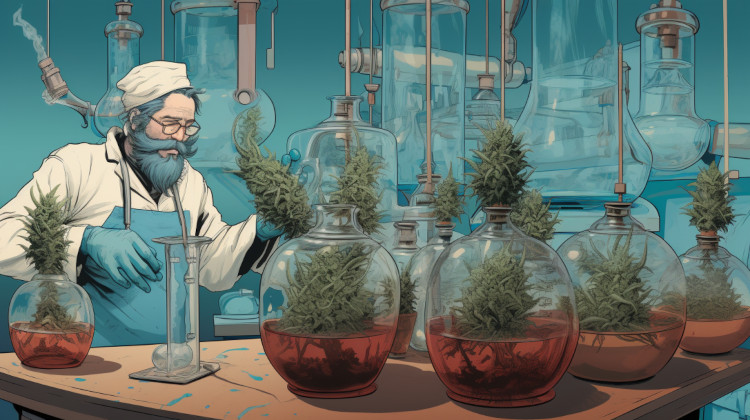
Delta-3 THC, also known as delta 6a10a, is an isomer of delta-9 THC. It was first isolated in the 1940s and does not exist naturally in the plant. Delta-3 THC's presence in the market is the result of its chemical conversion from other cannabinoids, often starting with cannabidiol (CBD).
Commercial quantities of delta-3 THC are produced through a chemical transformation process.2 This process often involves starting with abundant cannabinoids like CBD and using acid-catalyzed conversion to induce isomerization to synthesize delta-3 THC.3,4
Delta-3 THC's effects are not as extensively studied as other cannabinoids. Users have reported feeling mood-boosting effects and an increase in concentration. They've also found that delta-3 is much milder than other derivatives like delta-8.
Its structural similarity to delta-9 THC suggests that it could potentially share similar effects, such as anti-inflammatory properties, appetite stimulation, pain relief, and relaxation. However, further research is required to determine its specific effects and intensity.
What is Delta-6 THC?
Research from the 1970s and 80s initially referred to what we know today as delta-8 THC as delta-6 THC.5
The origins of the current designation of delta-6 THC remain a bit of a mystery, with uncertainties surrounding when it was definitively identified.
Despite its rarity in natural cannabis, delta-6 THC can be produced synthetically. As with many cannabinoids, delta-6 THC is an isomer of THC. Through a process known as isomerization, the molecular structure of CBD can be rearranged to convert it into delta-6 THC, or rather delta-8 THC.
From anecdotal accounts, users have reported that the effects of delta-6 THC are comparable to delta-8, though concrete scientific data on its effects are limited. As with all lesser-known cannabinoids, approach with caution and be educated about their effects and risks before experimentation.
What is Delta-8 THC?

Delta-8 THC, an isomer of delta-9 THC, exists naturally in the cannabis plant but only as a degraded product of delta-9 THC, so its quantities are typically undetectable by labs. Given this scarcity in its natural form, the delta-8 THC available in the market generally comes from the chemical conversion of CBD.
This cannabinoid has sparked interest due to its notable differences when compared with its close relatives, delta-9 and delta-10 THC. Specifically, while delta-9 THC is renowned for its strong intoxicating effects, delta-8 offers a milder experience. Some users have even reported that delta-8-THC provides many of the experiential benefits of delta-9 THC, such as pain relief, relaxation, and euphoria, but with fewer adverse effects.6
However, when comparing delta-8 with other forms, it's not just about potency. The difference in effects and experiences in these cannabinoids have led to questions such as: "Is delta-10 stronger than delta-8?" Understanding the differences between delta 8, 9, and 10 is also essential.
Despite the increased availability of delta-8 for purchase, many wonder about its purity. Due to varying processing standards, some delta-8 products can contain a mix of byproducts and other unwanted compounds.7
Several states are byproducts of delta-8 THC similar to delta-9 THC, with some even banning its sale until more comprehensive research is conducted. As with all cannabinoids, especially those recently introduced to the market, caution is the best way forward.
What is Delta-9 THC?
Delta-9 THC is the main intoxicating compound found in the cannabis plant. It's one of the most recognized and studied cannabinoids, overshadowing other cannabinoids like delta-8 and delta-10. When most people think of THC and its mind-altering effects, they are thinking of delta-9 THC.
Delta-9 naturally occurs in the cannabis plant. It develops from the decarboxylation of THCA (tetrahydrocannabinolic acid) through a process where heat transforms the non-intoxicating THCA into delta-9 THC. This conversion happens when cannabis is smoked, vaped, or cooked.
Users report various effects from delta-9 THC, including euphoria, relaxation, increased appetite, heightened sensory perception, and altered time perception. However, overconsumption can lead to paranoia, anxiety, and memory impairment.8 Users report that delta-8 and delta-10 offer slightly milder experiences with fewer adverse effects.
Beyond its recreational use, delta-9 has been studied for its potential therapeutic benefits. It has shown promise for reducing symptoms like nausea and vomiting associated with chemotherapy, improving appetite in AIDS patients, and may provide relief from certain types of pain.
What is Delta-10 THC?
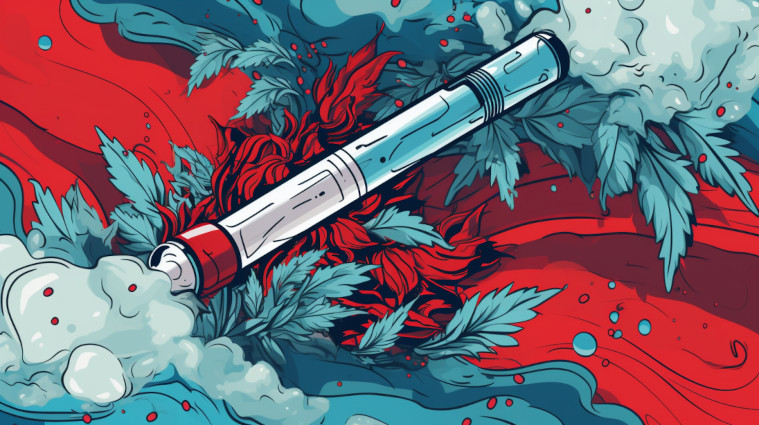
Delta-10 THC has recently gained attention due to its reported mild effects and potential therapeutic properties. Although it's structurally similar to delta-9 THC, the effects and benefits of delta-10 are slightly different.
Delta-10 THC was first isolated in the 1940s, along with many of the above-listed cannabinoids, and was initially called delta-2 THC.9 Like delta-8 THC, delta-10 is thought to be a degradation byproduct of delta-9 THC and not directly produced by the product. However, in today's industry, delta-10 is made by converting CBD in a controlled setting in a manner similar to the above cannabinoids.
Delta-10 reportedly offers a milder intoxicating experience than delta-8 and delta-9. Its high has been reported as more cerebral, with energizing and motivating effects. Users also say they feel less paranoia and anxiety compared to delta-9.
While many users believe delta-10 THC to be relatively safe, especially given its milder intoxicating effects compared to delta-9, there's a lack of comprehensive research on its long-term effects. Users should approach with caution, starting with small doses and being aware of their body's reactions.
What is Delta-11 THC?
Delta-11 THC is another of the many cannabinoids found in the cannabis plant. Delta-11 THC is not as widely discussed or researched as other THC variants like delta-9 or delta-8. Not to be confused with 11-hydroxy-THC, delta-11 THC has unique properties that set it apart from its more popular counterparts, delta-8 and delta-9 THC.
Delta-11 THC, like other THC variants, is naturally present in the cannabis plant, though its concentration might be lower than the more prominent compounds. It's synthesized in labs, commonly derived from delta-8 THC, which is initially produced from CBD.
Due to the limited data available, the specific effects of delta-11 THC on the human body are not thoroughly documented, but early data indicates it does have pharmacological activities. Those who have tried delta-11 have reported several potential benefits, including relaxation, reduced anxiety, and euphoria. However, in terms of potency, it's believed to be notably milder than delta-9.10
While the potential therapeutic benefits of other THC forms are being explored extensively, the therapeutic applications of delta-11 THC are not well-researched. As research progresses, more insights into its therapeutic properties and potential benefits might come to light.
Due to the scarcity of research on delta-11 THC, its safety profile and potential side effects are not well understood. Until more is known, a cautious approach for those interested in exploring this cannabinoid is best.
The Showdown: Which Delta is Strongest?
When determining which delta is strongest, it's important to understand that while potency might matter to some, overall experience and safety are equally crucial. The intoxicating effects of cannabinoids can differ vastly, making some stronger than others.
Here's a comparison of different delta cannabinoids:
Ranking from Least to Most Potent:
- Delta-11: This cannabinoid is the least potent among the bunch. In studies with animal models, delta-11 has approximately 0.65 times the binding affinity of delta-9 and may exhibit a binding affinity that's up to 50 times less than delta-9.10
- Delta-10: While it's recently gained attention, delta-10's potency remains lower than delta-8 and 9.
- Delta-8: Offering milder intoxicating effects compared to delta-9, delta-8 is often chosen by those looking for a less intense high.
- Delta-3 and Delta-6: The potency of these two is not conclusively known. However, it's speculated that they might have potencies similar to or between delta-8 and 9.
- Delta-9: Traditionally recognized as the primary intoxicating compound in cannabis, delta-9 THC stands out as the most potent among the deltas listed.
Beyond molecular structure, other factors can influence the perceived strength of THC variants. These include individual tolerance levels, method of consumption (e.g., smoking vs. edibles vs. oils), and the presence of other cannabinoids and terpenes, which may modulate the overall effects through what's known as the "entourage effect."
While strength and potency are valuable metrics, it's important not to lose sight of the broader picture. When using cannabinoids, the experience should be enjoyable and suitable to your preferences. What might be too intense for one person could be just right for another.
Moreover, it's crucial to approach these products with caution. The market for hemp-derived cannabinoids remains largely unregulated, making safety and quality unpredictable. Before diving into any product, always conduct thorough research—checking into the brand's reputation and looking for a third-party certificate of analysis (COA)—and consult with healthcare professionals.
Balancing Potency and Safety
The rise of delta forms of THC post-2018 Farm Bill showcases the industry's knack for innovation amidst regulatory challenges. While these new products offer exciting opportunities, consumers must prioritize knowledge and safety. As the landscape continues to change, staying informed is essential for both consumers and regulators alike.
Which Delta is Right for You?
Delta-9 THC is the high-potency, intoxicating cannabinoid most consumers think about when they purchase cannabis products. If you’re looking for a less intense cannabis experience, delta-8 offers a smoother experience, and delta-10 may give you a light, uplifted buzz. No matter which you try, start low and see how your body reacts. Potency isn’t everything — the right THC form depends on your goals and how you want to feel.
References
- Mead A. Legal and Regulatory Issues Governing Cannabis and Cannabis-Derived Products in the United States. Frontiers in Plant Science. 2019;10. doi:https://doi.org/10.3389/fpls.2019.00697
↩︎ - WHO Expert Committee on Drug Dependence Critical Review. Isomers of THC.; 2018. https://cdn.who.int/media/docs/default-source/controlled-substances/isomersthc.pdf
↩︎ - Golombek P, Müller M, Barthlott I, Sproll C, Lachenmeier DW. Conversion of Cannabidiol (CBD) into Psychotropic Cannabinoids Including Tetrahydrocannabinol (THC): A Controversy in the Scientific Literature. Toxics. 2020;8(2):41. Published 2020 Jun 3. doi:10.3390/toxics8020041
↩︎ - Marzullo P, Foschi F, Coppini DA, et al. Cannabidiol as the Substrate in Acid-Catalyzed Intramolecular Cyclization. Journal of Natural Products. 2020;83(10):2894-2901. doi:https://doi.org/10.1021/acs.jnatprod.0c00436
↩︎ - Pertwee RG. Cannabinoid pharmacology: the first 66 years. British Journal of Pharmacology. 2009;147(S1):S163-S171. doi:https://doi.org/10.1038/sj.bjp.0706406
↩︎ - Kruger JS, Kruger DJ. Delta-8-THC: Delta-9-THC's nicer younger sibling? Journal of Cannabis Research. 2022;4(1). doi:https://doi.org/10.1186/s42238-021-00115-8
↩︎ - Food and Drug Administration. 5 Things to Know About Delta-8 Tetrahydrocannabinol: Delta-8 THC. Mo Med. 2022;119(1):21-22.
↩︎ - Ng T, Gupta V. Tetrahydrocannabinol (THC). In: StatPearls [Internet]. StatPearls Publishing; 2023. https://www.ncbi.nlm.nih.gov/books/NBK563174/
↩︎ - Srebnik M, Lander N, Breuer A, Mechoulam R. Base-catalysed double-bond isomerizations of cannabinoids: structural and stereochemical aspects. Journal of the Chemical Society, Perkin Transactions 1. Published online 1984:2881. doi:https://doi.org/10.1039/p19840002881
↩︎ - Compton DR, Prescott WR, Martin BR, Siegel C, Gordon PM, Razdan RK. Synthesis and pharmacological evaluation of ether and related analogs of .DELTA.8-, .DELTA.9-, and .DELTA.9,11-tetrahydrocannabinol. Journal of Medicinal Chemistry. 1991;34(11):3310-3316. doi:https://doi.org/10.1021/jm00115a023
↩︎
The information in this article and any included images or charts are for educational purposes only. This information is neither a substitute for, nor does it replace, professional legal advice or medical advice, diagnosis, or treatment. If you have any concerns or questions about laws, regulations, or your health, you should always consult with an attorney, physician or other licensed professional.

